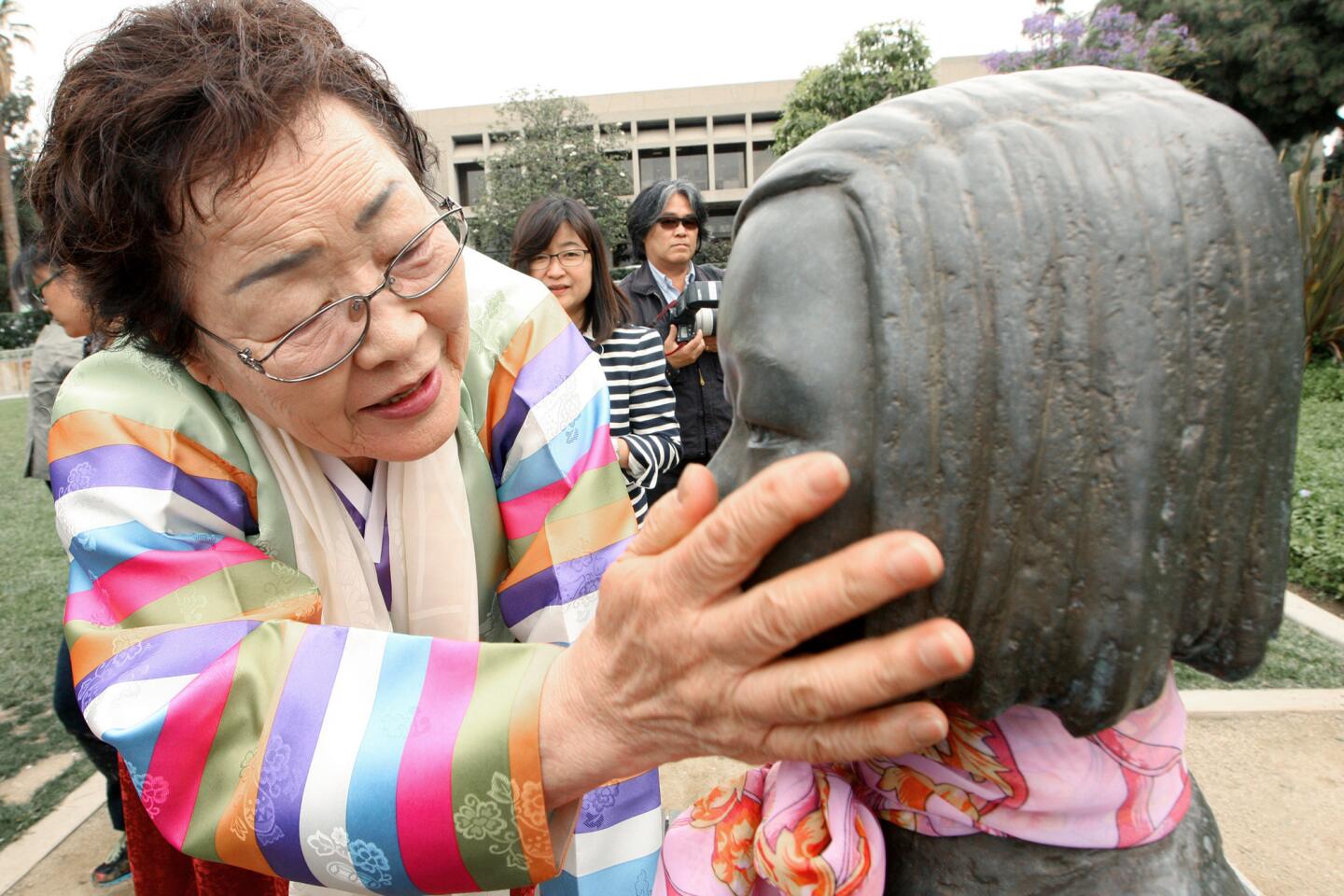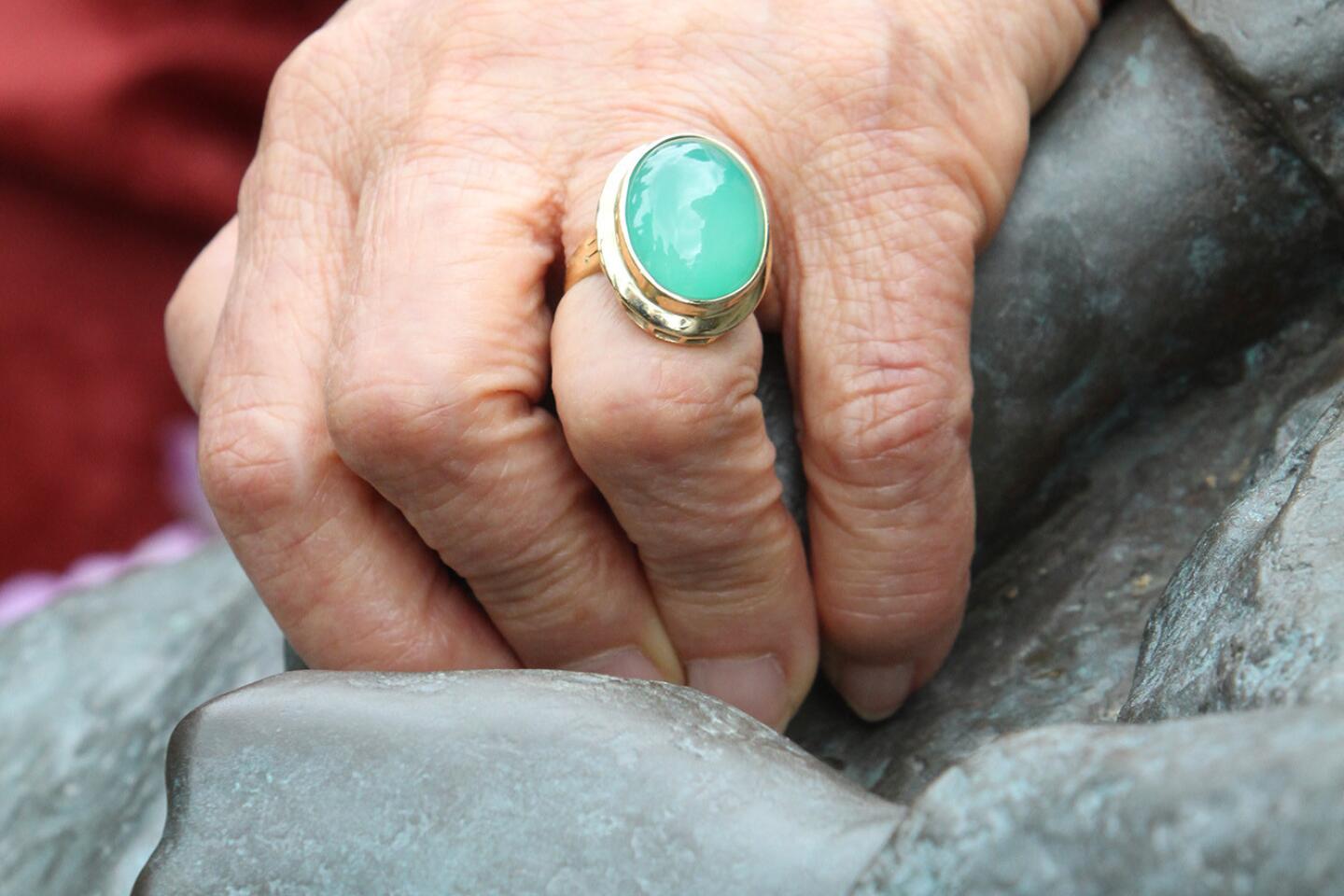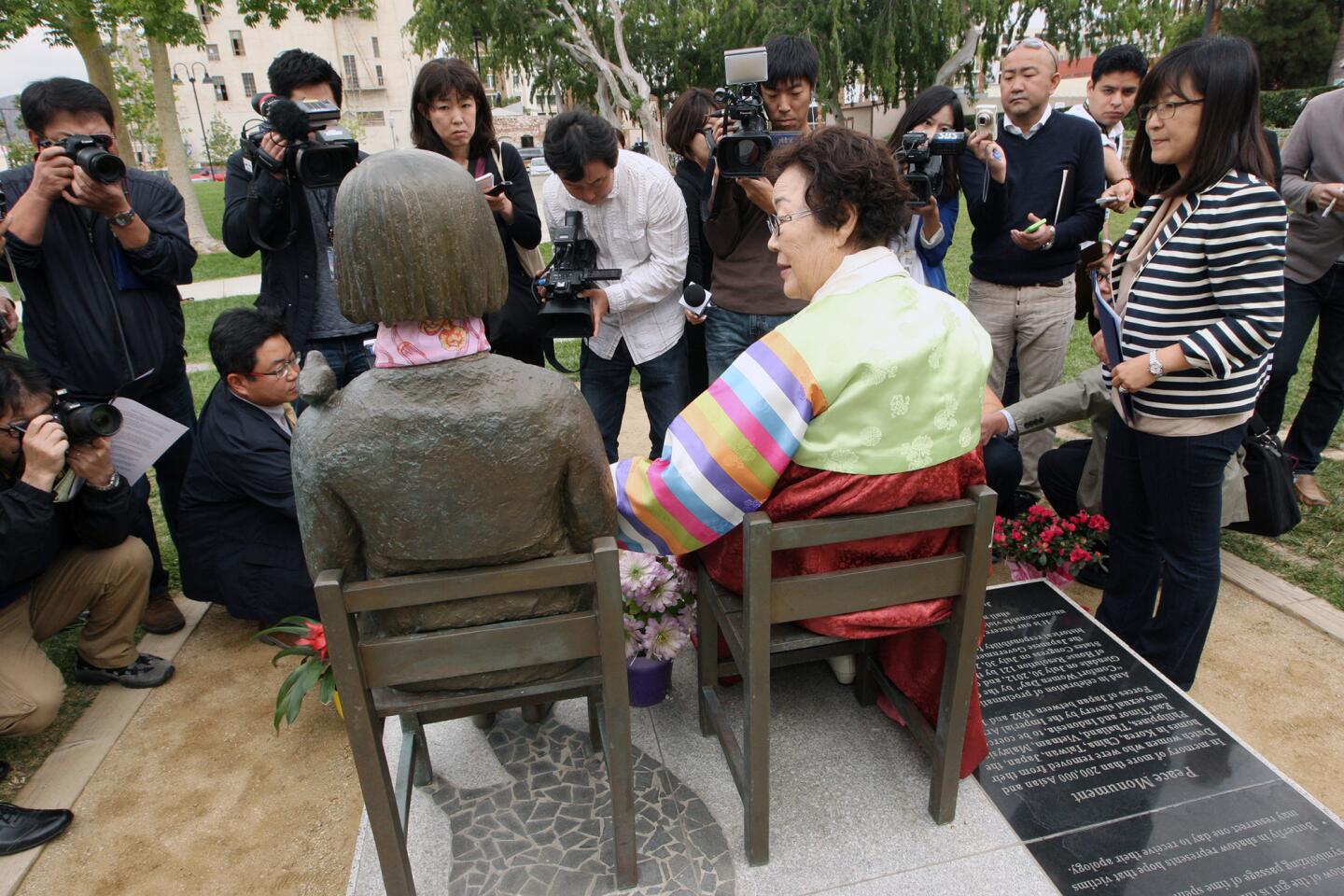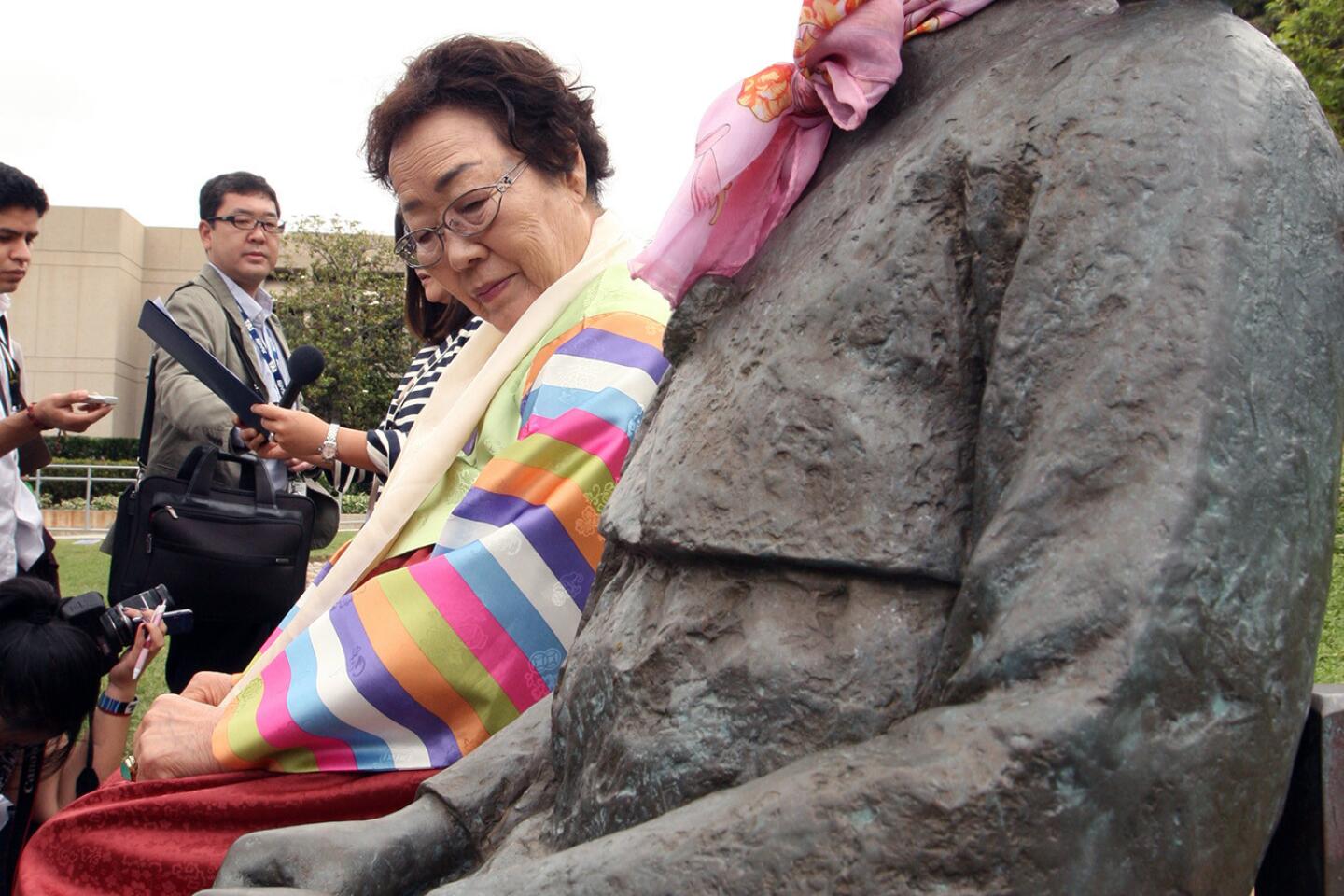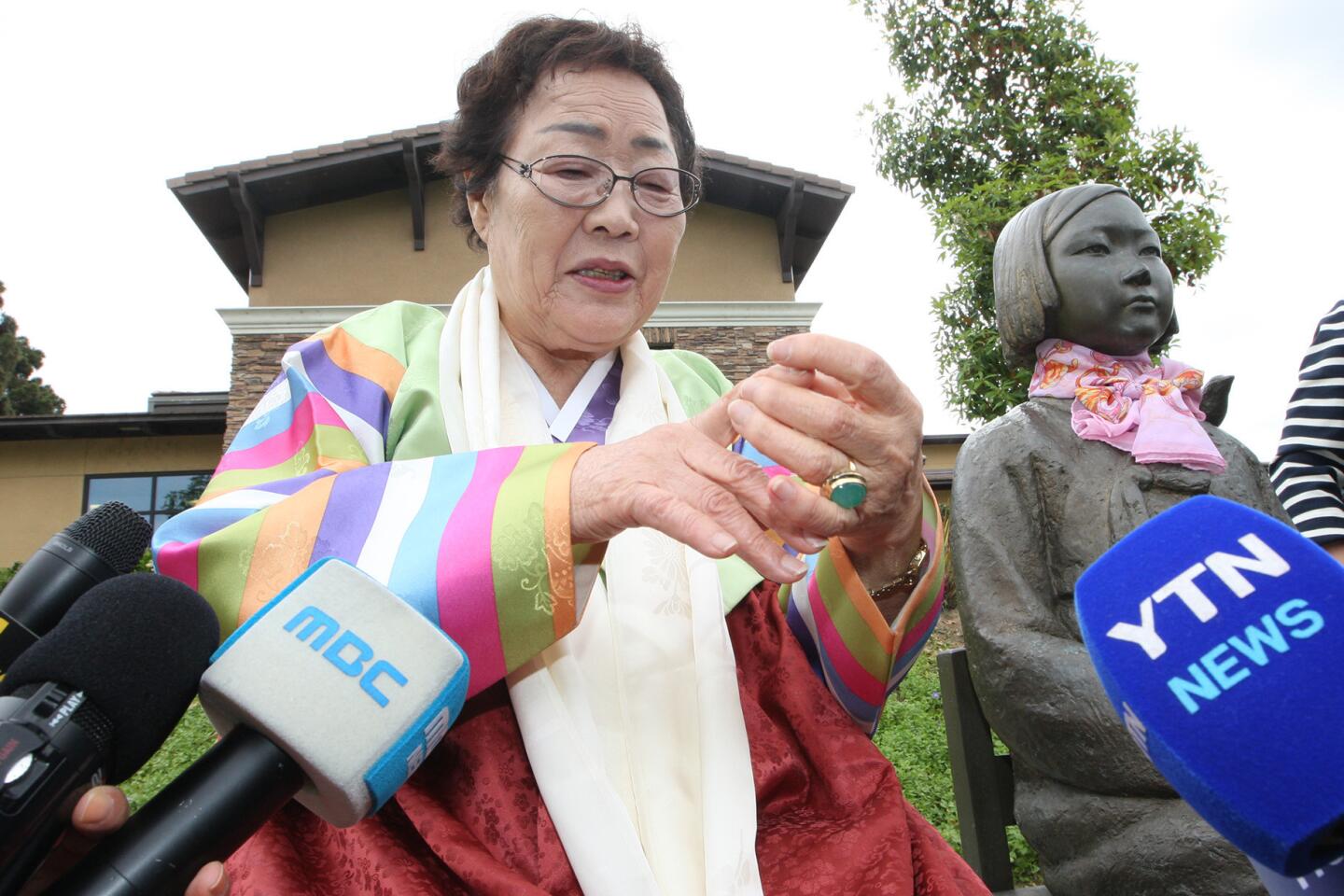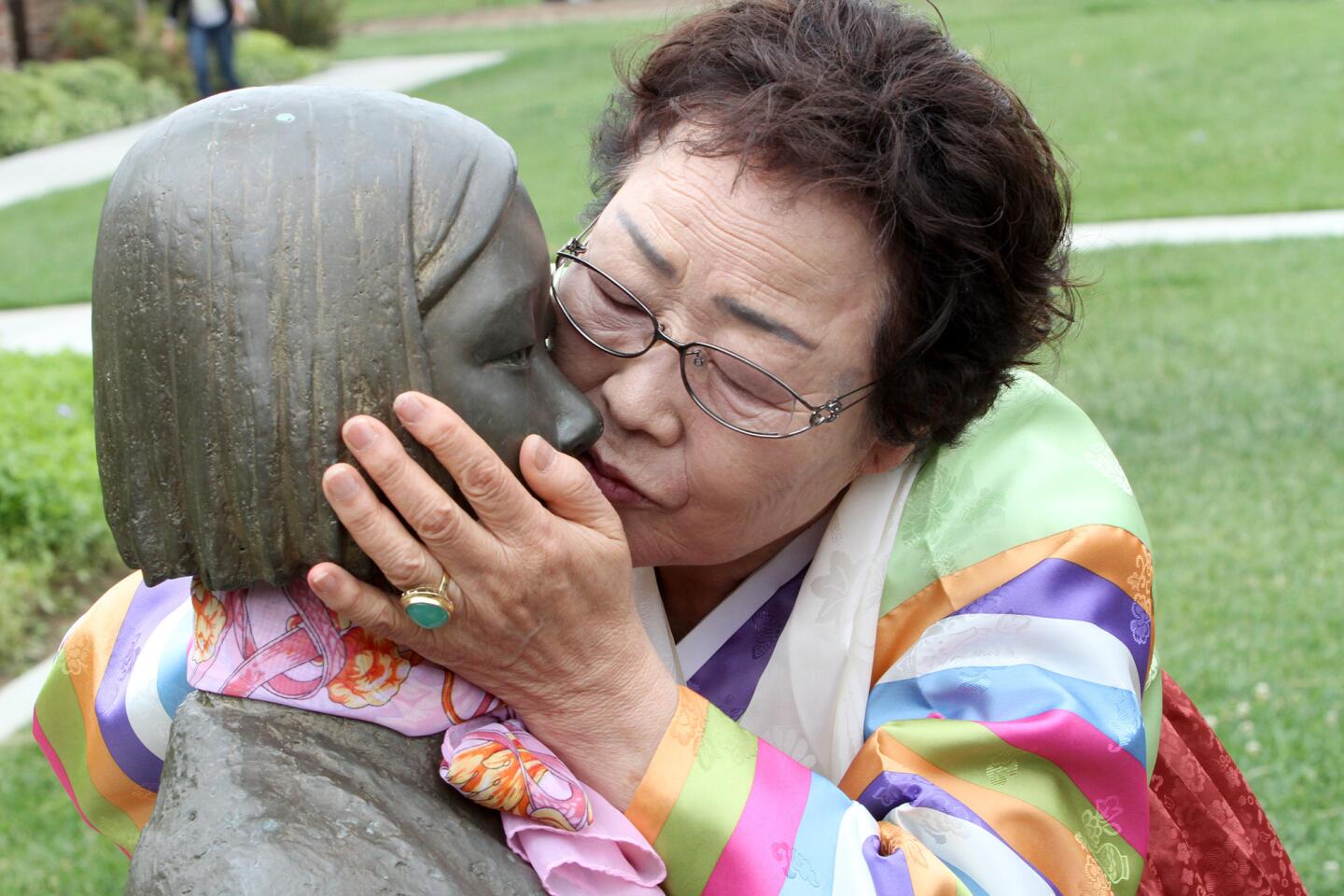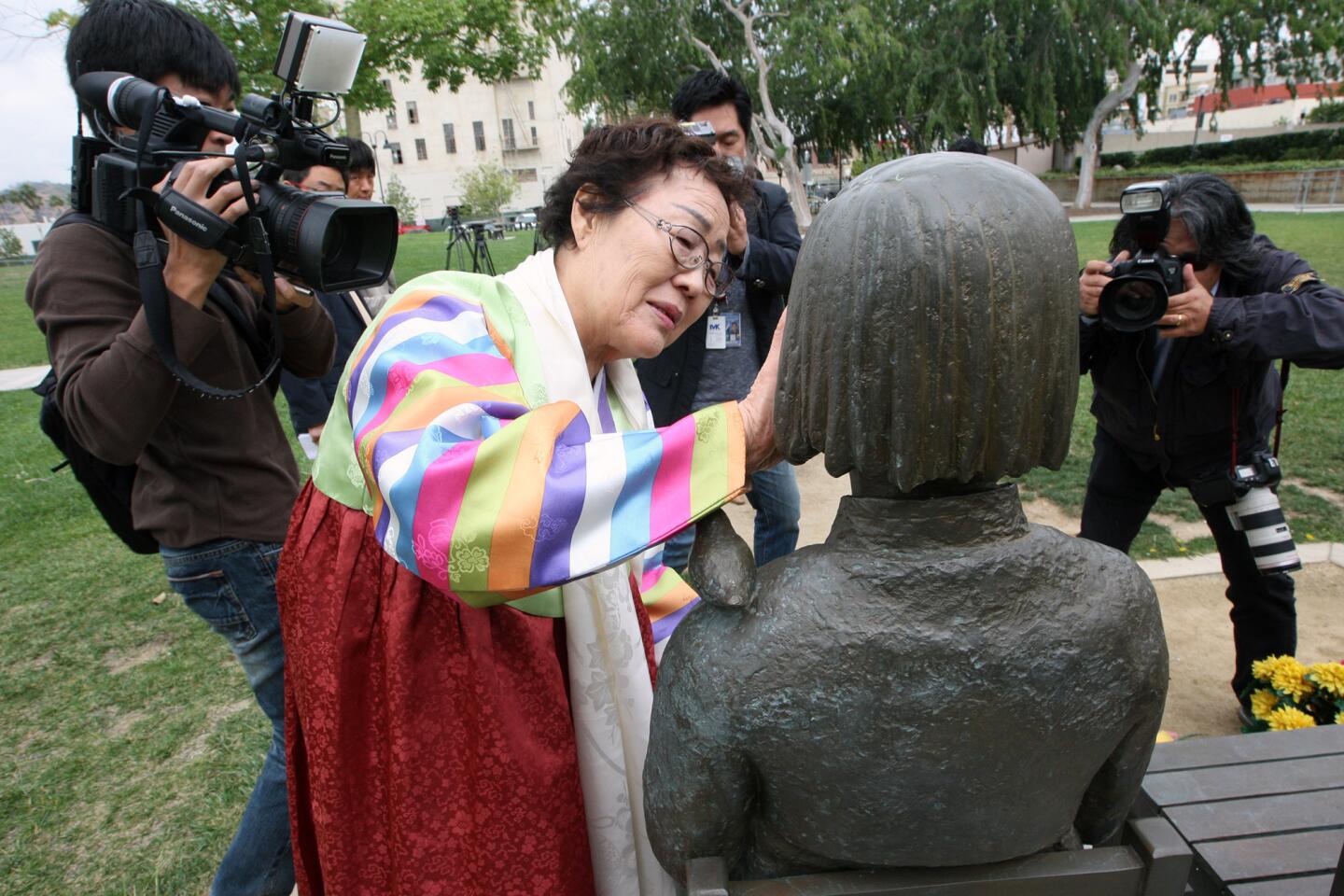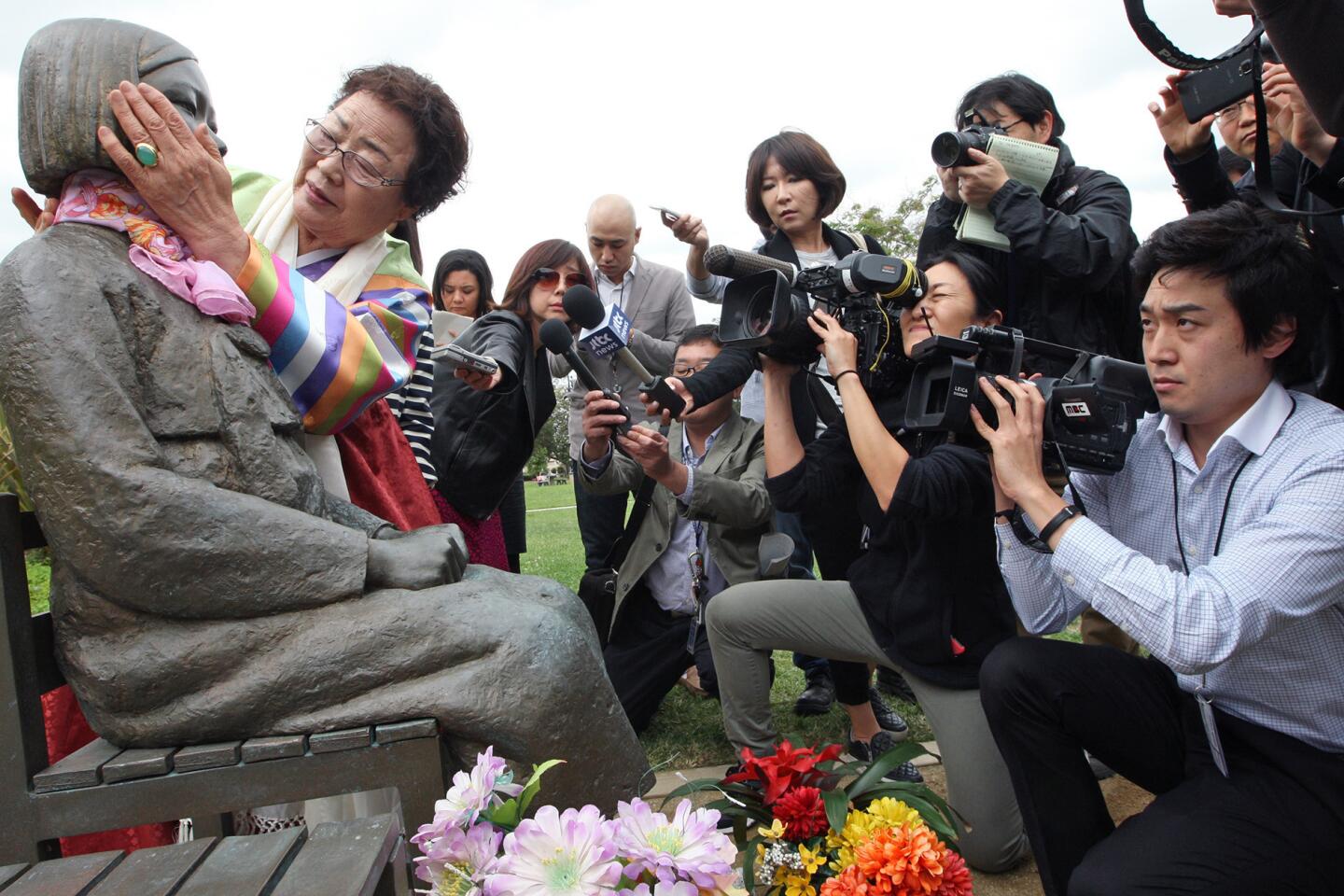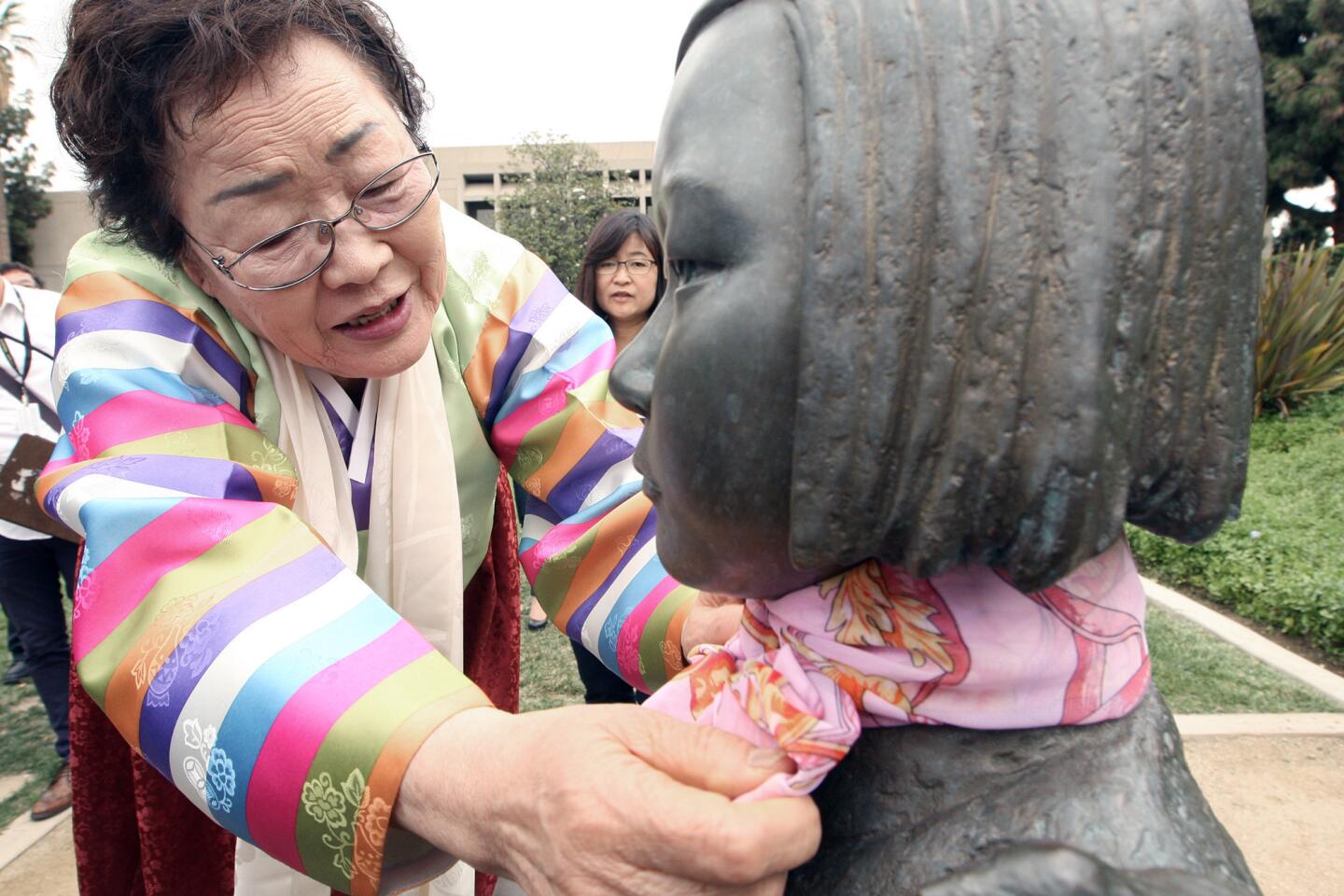Former comfort woman visits bronze memorial
Adorned in a traditional silk robe, 86-year-old Yong Soo Lee gradually made her way to the bronze comfort-women statue in Glendale’s Central Park with the help of two people at her side.
Lee, a former comfort woman, sat down on an empty seat that is part of the statue and next to the figure of a young, shoeless Korean woman, who is also seated. She became emotional when she talked about the parallels between the symbolism of the art piece and her own life.
“I was just like her. I was her age, but now I am like this,” Lee said, speaking through a translator.
Lee was one of the tens of thousands of women who were forced into sex slavery by the Japanese army during World War II, though many Japanese and parts of that nation’s government dispute the claims.
For several decades, Lee has been actively pushing for an apology from the Japanese government as well as reparations.
It was her first time in Glendale, but her fourth overall trip to the United States from South Korea. This time, her trip coincided with a U.S. visit by Japanese Prime Minister Shinzo Abe that included a stop at USC, where he had studied.
“Prime Minister Abe has failed to express sincere apology during his U.S. trip, including his address to the Joint Meeting of Congress,” Lee said. “He answered the urges and expectations of sincere apology from the Chairman of House Foreign Affairs Committee Ed Royce and Congressman Mike Honda with the deceiving phrase, ‘my heart aches.’”
The comfort-women statue in Glendale was erected in 2013 with the City Council’s permission and was paid for by for by Korean groups.
It’s estimated 80,000 to 200,000 women from Korea, China and other countries were forced into prostitution under coercion by the Japanese military.
Lee said she was kidnapped from her home when she was 14 years old and taken to Taiwan, where Japanese kamikaze pilots were being trained.
She said she suffered electrical torture, was beaten and was cut by a soldier’s knife.
“I still have the scars,” Lee said.
The statue has drawn the ire of many in the Japanese community, who have sent thousands of letters to Glendale officials demanding its removal.
A lawsuit filed by several parties, including the Global Alliance for Historical Truth, sought assistance from the courts to have the statue removed, but a judge ultimately shot down the request.
The Japanese Ministry of Foreign Affairs has acknowledged that the women involved were coerced and deprived of their freedom, but conservative Japanese politicians are working to backtrack previous government statements and apologies.
Lee, a grandmother, said if she could, she’d live to be 200 years old to gain an apology.
Lee was in Abe’s presence and, although she didn’t speak to him, she is convinced he saw her.
“However, I will never despair,” she said. “It was a great opportunity that exposed Abe’s deception to the whole world, leading more conscious people to participate in the movement to help the grandmas.”
Lee wrapped a thin scarf around the statue’s neck and spoke to the female figure about her determination to win an apology.
“Until then, you will remain like this with clenched fists and bare feet,” she said to the statue.
--
Arin Mikailian, arin.mikailian@latimes.com
Twitter: @ArinMikailian
